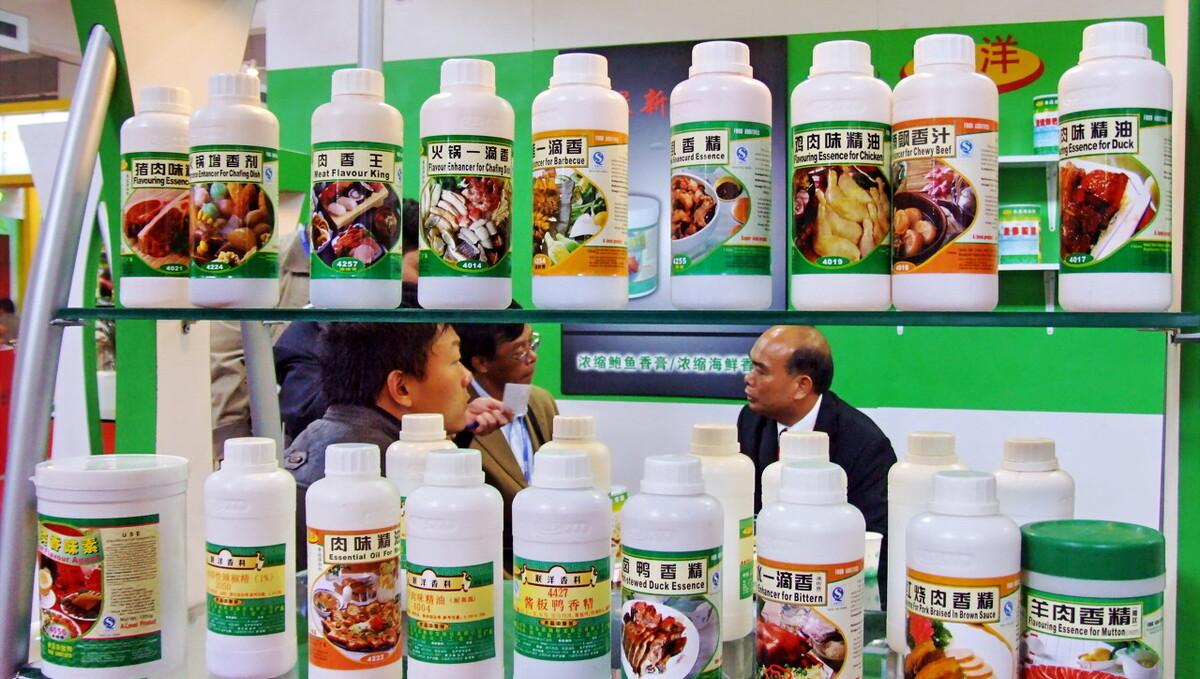Now many restaurants or cooked food owners will choose to use food additives, reasonable and legal use of regular food additives can improve the taste of food, viewing and storage time, can lock customers, but also reduce costs.

Additive factories offer a wide range of food additives
At the same time, some merchants believe in additives and blindly add them, so they are seized by the Food and Drug Administration and punished by law. I have shared several well-known cases in my interactions with students, such as:
"Pingdingshan Xinhua District Food and Drug Administration Investigated Xue Mou's Illegal Use of Nitrites in Marinated Meat"
"The Market Supervision and Administration Bureau of Xunyang County, Ankang City, Shaanxi Province, reported to the public security organs for criminal detention of Zhou Mou's pig shop for illegal use of additives"
"Shanghai Sheng * Food Co., Ltd., Xie Mou illegal use of lemon yellow was dealt with according to law"
Not understanding the law does not mean that the law is not corrected
Many students asked me: "The same is made of brine meat, why can these food additives be used in the factory, and my brine shop uses it illegally?" This is also a question that many restaurant owners wonder, which additives can be used, which can not be used, which are illegal? Today I will select a few commonly used and error-prone additives for everyone to interpret:
The current national food additive standards
Nitrite: According to GB2760-2014 "Food Additive Use Standards", industrial meat can be used in accordance with the standard, and catering outlets cannot use it. Nitrite can improve the color and taste of meat, but once used 0.3 to 0.5 g will be poisoned, more than 3 g will be fatal. Therefore, according to the regulations, restaurant delicatessens are absolutely not allowed to use nitrites as food additives, and once residues are detected to exceed the standard, it will violate the law.
Nitrite is so dangerous, it can be called "poison", even if it can be used, the dose is so small, as an ordinary catering practitioner, in the absence of accurate detection instruments, how do you control the amount of use?
It is said that nitrite carcinogenicity, in fact, is not nitrite carcinogenic, is nitrite and protein formation of nitrite amines is carcinogen, generally in the industrial food production to add nitrite, but also add vitamin C, or ascorbic acid", "sodium ascorbate", "D-iso ascorbate sodium", can inhibit the conversion of nitrite into nitrite amine, you can pay attention to the following supermarket to buy pepper wind claw, canned meat, which is not added to the nitrite at the same time is there more than several substances?
Sodium benzoate: Recognized preservative in the food industry, several preservatives commonly used in food additives: benzoate, propionate and sorbate. Among them, the most commonly used is sodium benzoate (cheaper, three times cheaper than potassium sorbate, and jelly foods have been banned at present). According to GB2760-2014 "Standard for the Use of Food Additives", sodium benzoate is not allowed to be used in meat products. And many people fall into a misunderstanding, think that the addition of sodium benzoate can be preservative, which is wrong, preservatives only in the case of vacuum to make food have a certain antiseptic effect, we make cooked food is basically in contact with the air, the use of sodium benzoate how to antiseptic effect? And the preservative itself has a more pungent taste, which will affect the taste of food. According to scientific studies, ADHD in children is related to excessive consumption of sodium benzoate. Sodium benzoate is difficult to be metabolized, eating more will be harmful to health, we only eat a limited intake of one food, but the food eaten every day is diverse, and the accumulation of less is a problem, especially for people with poor liver function. The use of this additive in our daily operations will be counterproductive, and if it is really used, it will be illegal! Regarding the extended shelf life of marinated meat, in fact, it is entirely possible to extend the shelf life through seasonings, spices, and reasonable processing methods, this problem I will specifically talk about in the future update, please pay attention to me, get more catering industry knowledge.
Colorants: carmine, lemon yellow, sunset yellow can not be used; red yeast rice and red yeast red can be used and the dosage is not specified.
According to GB2760-2014 "Food Additive Use Standards", carmine, lemon yellow, sunset yellow can not be used in brine meat products, if the use is illegal, there can be residues, but the amount of residues is negligible, the food and drug department's detection tools are easy to detect. Although red yeast rice and red yeast rice can be used, but the use of more will cause food acidity, in general, I recommend that students through red yeast rice for food over the water background color.
The above three types of additives are not allowed to be used in food business restaurants, delicatessens, food safety and health are two different concepts, we want to make delicious food, I recommend the use of high-quality ingredients, proficiency in the use of seasonings, and scientific processing steps. In addition to running a business, we should also strengthen the learning of knowledge in the industry. Safety is the highest priority attribute in food production, and food safety is above all else, beyond the health and taste of food.